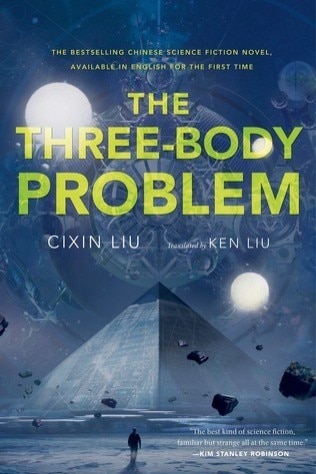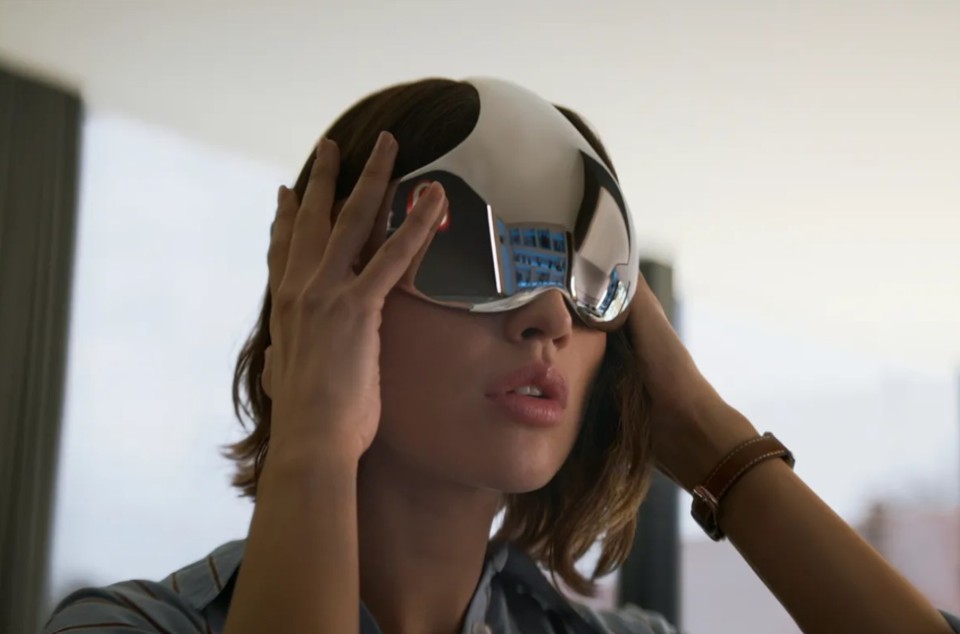Liu Cixin’s narrative, a highly acclaimed computer engineer and science fiction writer whose novels have sold millions of copies worldwide, inspiring numerous films and TV series, resembles a collection of small and large boxes. Some hide surprises, others collapse, others again contain other boxes. If we were to draw the narrative the entire “Remembrance of Earth Past” trilogy, his masterpiece recently adapted into the Netflix series “3 Body Problem,” the picture would resemble an inverted pyramid of boxes so dense and intricate that it seems to stretch towards infinity, inexorably expanding as the story progresses.
One of Liu Cixin’s strokes of genius lies precisely in reclaiming a great human or even more than human theme explored by military, political, and advertising strategists of every era and culture: dissimulation, lies, as well as literature - in other words storytelling.

In that dark forest that is the universe, someone revealed Earth’s position to another planet: Trisolaris. An alien species, the Trisolarans or San Ti, has set out on a journey and is now 400 years away from Earth. Among humanity, there are those who await the new species with confidence and devotion, while others have faced their terrible, highly technological weapons, ranging from the sophons, supercomputers the size of a proton used for surveillance and communication, to the video game and recruitment tool “Three-Body”, portrayed in the Netflix series as the perfect virtual reality, where one can hear, smell, and touch.
Earth’s technology is not even remotely comparable to that of Trisolaris, but humans have two trump cards. The first, which is clear to the Trisolarans, is that our world is stable, revolving around a single sun. The second, a revelation that comes as a terrible shock to the Trisolarans, is the ability to lie. One of Liu Cixin’s strokes of genius lies precisely in reclaiming a great human or even more than human theme explored by military, political, and advertising strategists of every era and culture: dissimulation, lies, as well as literature - in other words storytelling.

In wars of conquest, particularly those involving foreign or alien cultures, falsehood is a fundamental weapon. In “History of the Conquest of Mexico,” William Prescott recounts how the Aztecs, clad in cumbersome ceremonial robes adorned with vibrant feathers and adorned wooden helmets depicting animal visages, stood little chance against Cortez’s Machiavellian tactics. Cortez, who camouflaged his troops, distributed poisoned blankets to adversaries, and exploited Malinche’s local insight to creep into the enemies’ minds. The theme of deception in battle, exemplified by Odysseus in ancient times, is also described in the first chapter of “The Art of War” attributed to General Sun Tzu who lived between the 6th and 5th century of Imperial China, who proclaimed, “ll warfare is based on deception.” What would it mean for humans to face a species with extremely advanced technology but incapable of lying?
To prepare for their arrival, the Trisolarian voice appears to humans who have chosen to cooperate with the invaders, in exchange for hopes and promises. In a conversation with Mike Evans, portrayed in the series by the well-suited Jonathan Pryce, who, like much of the cast, boasts roles in Game of Thrones, through reading the tale Little Red Riding Hood and the wolf pretending to be the grandmother, the Trisolarian voice learns about deception. For the voice, this kind of stratagem, as well as the ability to state falsehoods, are incomprehensible concepts.

The lapidary phrase “You’re bugs! ”, which in the series the Trisolarans project on all the screens of Earth, becomes an act of propaganda and fiction after discovering the terrible reality, which is that humans cannot be trusted. The inscription, which appeared on the video billboards in many cities worldwide and in our reality, among which Rome at the Termini station, to advertise the release of the series, shocked many passersby, only to become a meme within a few seconds. In The Three-Body Problem, the same phrase appears for two seconds in the eyes of the scientists who attended Ye Wenjie’s conference.
For many fans of the book and the series, this is a terrible puzzle: if the Trisolarans are unable to lie, how can they formulate this powerful metaphor? Is it true that they do not lie? Can they omit? Can they learn from our literature? The comparison with the current developments of Gen AI in relation to humans becomes very interesting to explore at this point.
Liu Cixin’s extraordinary ability to move from microcosms to the incomprehensible vastness of universes and centuries makes its timid appearance in the Netflix series in the scene of the ant. In this scene, the ant navigates through the heights and depressions that form the numbers 1, 9, 7 on Yang Dong’s gravestone, unaware of the very important conversation taking place between Ye Wenjie, the one who transmitted the first message to the San-Ti, making Earth visible in that dark forest that is the universe, and Luo Ji, the Impenetrable future.
“The brown ant had already forgotten its home. To the twilight Earth and the stars that were just coming out, the span of time may have been negligible, but, for the ant, it was eons.” That conversation on “cosmic sociology”, narrated from the ant’s point of view in the prologue of “The Dark Forest”, marks the birth of the axioms of cosmic civilization, and is the tip of the inverted pyramid. The immense base of the pyramid is to be discovered in the astonishing finale of the third novel of the trilogy, namely “Death’s End.”
Opening image: Courtesy Ed Miller, Netflix


